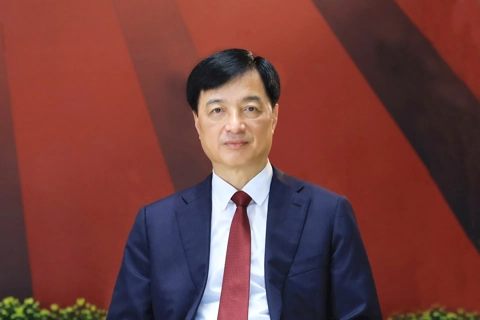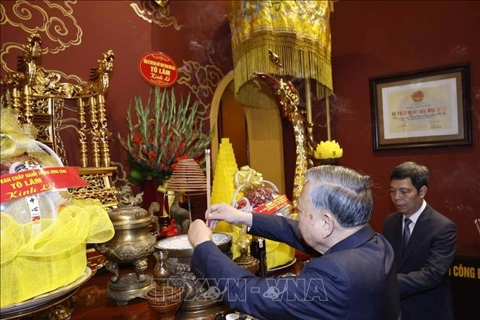Vietnam’s largest waste-to-power plant to begin operation from Jan. 20
The project will make an important contribution to the city’s garbage treatment.
The Soc Son waste-to-energy project is located in Nam Son Waste Treatment Complex in Hanoi, the largest one in Vietnam, will become operational from January 20.
Incinerator No.3 with a capacity of handling 800 tons of solid refuse daily, will start the plant’s operation tomorrow.
The plant has five incinerators and three generator sets. Under favorable conditions, the plant will generate electricity after 15 days of burning waste. Currently, 645 people are participating in the project implementation, including 125 foreign experts.
The move came to help handle the issues of waste treatment in Hanoi, a very frustrating problem for residents living near the Nam Son Waste Treatment Complex.
The construction site of Thien Y waste-to-energy plant in Hanoi. Photo: Bao Minh |
On January 7, Vice Chairman of the Hanoi People’s Committee Nguyen Trong Dong visited the project whose investor is Hanoi-based Thien Y Environmental Energy JSC and its contractor, Chinese Metallurgical Group Corporation General Contractor MCC (China).
According to the investors, the Ministry of Construction’s State Authority for Construction Quality Inspection checked the project’s items for the third time on January 17.
Dong urged the investors to continue speeding up the project, adding that local authorities would offer the most favorable conditions for this.
In recent years, the Nam Son complex has been in the news several times for a long-running dispute over land compensation that repeatedly caused local residents to block entry to it, resulting in trash piling up around the city.
Being aware of the importance of thorough waste treatment in a large city like Hanoi, the municipal government has invested a lot of resources to modernize waste collection and treatment in recent years.
The Soc Son waste-to-energy project, with a capacity of handling 4,000 tons of solid waste and 1,740 tons of wastewater per day, was approved by Hanoi’s authorities in late 2017 with a total investment of VND7 trillion (US$303 million).
According to the Hanoi Department of Construction, the city currently discharges 6,000 tons of waste every day. Most of the volume is buried at the Nam Son Waste Treatment Complex. It is hoped that this new project will reduce pollution levels, which have for years affected daily life in the capital city.
The plant is expected to generate 75 MW of power per hour.











